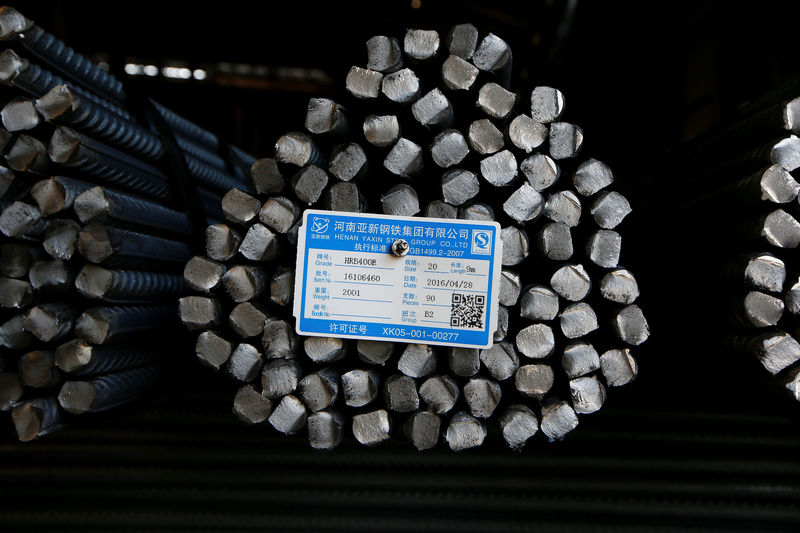BRUSSELS (Reuters) - Twelve global steel associations urged the Group of Seven advanced economies, which meet in Japan this week, to prevent cheap Chinese steel distorting world markets and inflicting further pain on producers.
Steelmakers have been hit by a plunge in steel prices, which Europe and the United States have blamed on a surge in cheap exports from China that has exacerbated the impact of a collapse in demand following economic crisis.
Among the casualties are Tata Steel, which in March announced it was selling its British operations as it could no longer sustain deep losses, prompting a political scramble to save the thousands of jobs at stake.
The White House has already said discussion of actions to reduce global industrial overcapacity, with an emphasis on the steel glut, would be on the agenda for Japan talks starting on Thursday.
Open letters made public on Wednesday to world leaders from 12 steel industry bodies and other manufacturers said that discussion must include action against countries that do not respect market economy conditions, especially China, and oversupply had to be tackled.
"If global overcapacity borne of state-supported enterprises' uneconomic operations continues it will threaten the survival of efficient companies operating in environments with little or no government support," Axel Eggert, director general of the European steel body EUROFER, said in an emailed statement.
Earlier this month, EU lawmakers overwhelmingly rejected any loosening of trade defences against China, whose eligibility for market economy status is being debated by the European Union.
Beijing says the status is its right, 15 years after it joined the World Trade Organization, and says it is blamed unfairly for a steel crisis by nations it accuses of protectionism.
Granting market economy status would make it hard for the EU to impose trade restrictions to protect its own industry.
EUROFER says it is clear China is the root cause and that the nation had built up a 50 percent share of total global steel capacity by 2015, compared with 15 percent in 2000.
In addition to the steel industry letter, AEGIS Europe, the alliance of manufacturing industries in Europe, wrote to the political leaders of Britain, France, Germany and Italy, as well as EU leaders Donald Tusk and Jean-Claude Juncker, urging them to resist "unjustified demands for treating China as a market economy".
